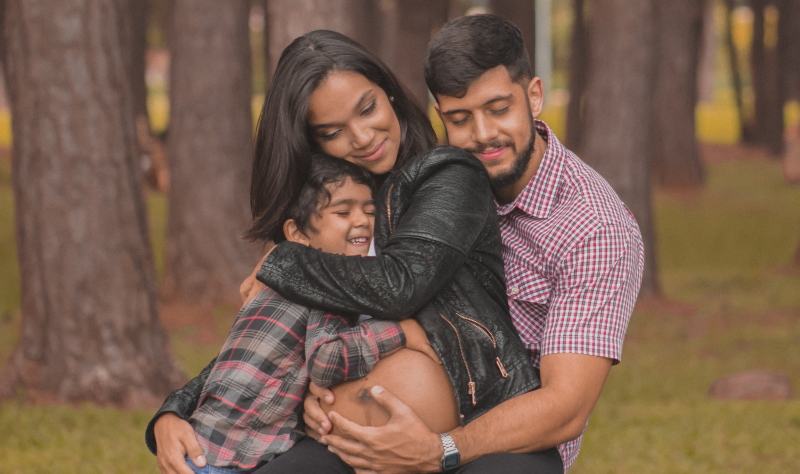Team: Prof Maria Fernanda Peres, University of Sao Paulo (principal investigator), Prof Manuel Eisner, University of Cambridge (co-investigator), Dr Renata Bertazzi Levy, Dr Catarina Machado Azeredo, Dr Leandro Fórnias Machado de Rezende, Dr Marilia Pontes Sposito, Dr Márcia Thereza Couto Falcão.
Brazil has exceptionally high levels of interpersonal violence, including youth violence and victimisation. Most of the evidence on risk and protective factors in research literature comes from high-income countries. However, risk and protective factors may vary in different settings with distinct cultural norms, social organisation and violence levels. This projects aims to conduct a cross-sectional school-based survey with a representative sample of 14-15 year-old adolescents in São Paulo, Brazil.
This project uses the methodology of the Zurich Project on the Social Development of Children (z-proso) and the Montevideo Project on the Social Development of Children (m-proso) to research risk and protective factors for violent behaviour and victimisation in Brazil. This three-year project is funded by a British Academy grant (the Newton Advanced Fellowship). It aims to estimate the prevalence of violence perpetration and victimisation among adolescents and to investigate the association between socio-demographic, individual, relational (family and peer), school and neighbourhood factors with violence perpetration and victimisation.
A cross-sectional, school-based survey was conducted in a sample of 9th-year students of state and private schools in São Paulo. The students are in the last year of the secondary mandatory school cycle. The sampling strategy followed the steps used in Montevideo and Zurich: a stratified cluster-randomised approach having the schools as primary sampling units and classes as secondary sampling unit. Questionnaires were translated and adapted to Portuguese and pre-tested. Data collection ended in December 2017.
In July 2017 the first international workshop was helded in São Paulo, involving education steakholders from the public administration and private schools. Prof. Manuel Eisner and Dr Nico Trajtenberg, from the Universidad de la Republica de Uruguay, were present with other Brazilian academics to discuss topics related to determinants and prevention of school violence. Local programs were presented and Municipal and State Educational board representatives from São Paulo shared with their experiences on Violence and Bullying prevention in schools. All the 119 schools sampled to participate were invited. As a result of the study, the researchers plan to develop a violence prevention intervention and a training module – both aiming to control and reduce violence levels in Brazil.
In December 2018, Prof Maria Fernanda Peres from the Department of Preventive Medicine and Prof Manuel Eisner presented the findings of the São Paulo's Study on the Social Development from Childhood to Adolescence, sp-proso. The study is based on a representative sample of 2702 15-year-old children in 119 schools in Sao Paulo. The conference was held at the University of São Paulo and discussed the findings with head teachers and stakeholders of the city and the state. The goal is to develop a shared platform that can help to support an intersectoral public health approach to violence prevention. You can download the report here (Portuguese and English).
The project has now a dedicated Brazilian website: https://sites.usp.br/sp-proso. In November 2019 a report entitled Violence, bullying and repercussions on health was published. You can find it here. The project has been gaining considerable media coverage in Brazil.
Key Publications
- Astolfi, R.C., Leite, M.A., Papa, C.H.G. et al. 'Association between self-control and health risk behaviors: a cross-sectional study with 9th grade adolescents in São Paulo'. BMC Public Health 21, 1706 (2021). https://doi.org/10.1186/s12889-021-11718-4
- Ferrari, G., Rezende, L.F.M., Florindo, A.A. et al. 'School environment and physical activity in adolescents from São Paulo city'. Sci Rep 11, 18118 (2021). https://doi.org/10.1038/s41598-021-97671-z
- Faisal-Cury, A., Leite, M., Escuder, M., Levy, R., & Peres, M. (2021). The relationship between ultra-processed food consumption and internalising symptoms among adolescents from São Paulo city, Southeast Brazil. Public Health Nutrition, 1-9. doi: https://doi.org/10.1017/S1368980021004195
- Quinlan-Davidson M, Kiss L, Devakumar D, Cortina-Borja M, Eisner M, Tourinho Peres MF (2021) 'The role of social support in reducing the impact of violence on adolescents’ mental health in São Paulo, Brazil'. PLoS ONE 16(10): e0258036. https://doi.org/10.1371/journal.pone.0258036
- Ferrari G, Rezende LF, Wagner GA, et al. 'Physical activity patterns in a representative sample of adolescents from the largest city in Latin America: a cross-sectional study in Sao Paulo'. BMJ Open 2020;10:e037290. doi: https://doi.org/10.1136/bmjopen-2020-037290
- Loch, A.P., Astolfi, R.C., Leite, M.A. et al. Victims, bullies and bully–victims: prevalence and association with negative health outcomes from a cross-sectional study in São Paulo, Brazil. Int J Public Health 65, 1485–1495 (2020). https://doi.org/10.1007/s00038-020-01481-5
- Amy Nivette, Nico Trajtenberg, Manuel Eisner, Denis Ribeaud, Maria Fernanda Tourinho Peres. 'Assessing the measurement invariance and antecedents of legal cynicism in São Paulo, Zurich, and Montevideo'. Journal of Adolescence, Volume 83, 2020, Pages 83-94, ISSN 0140-1971, https://doi.org/10.1016/j.adolescence.2020.06.007

